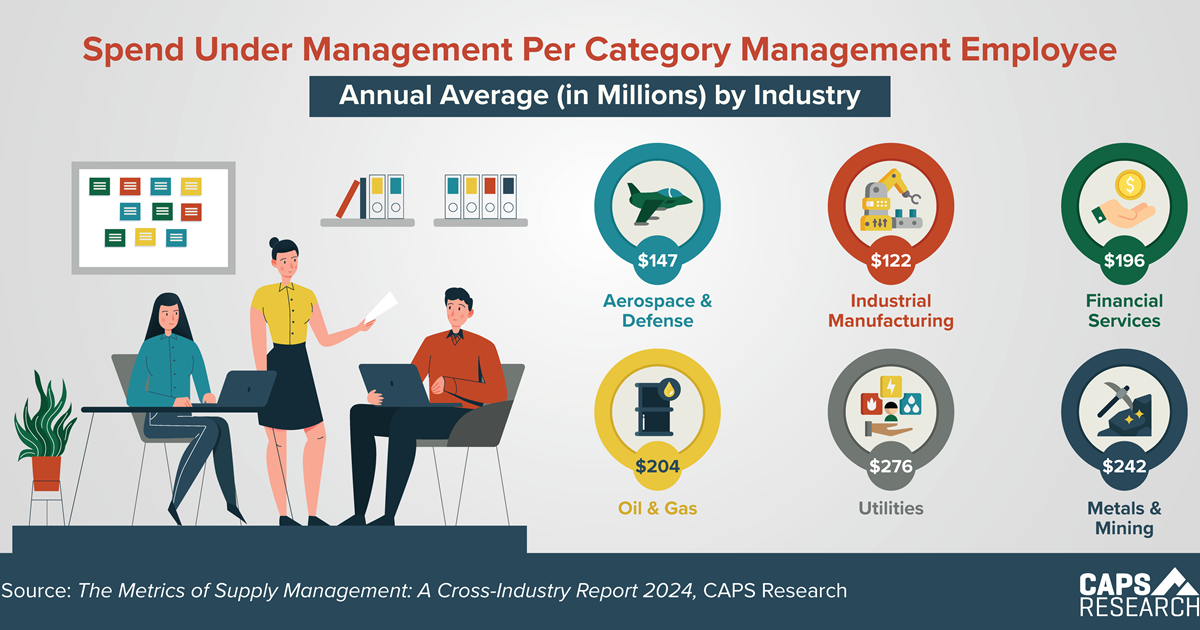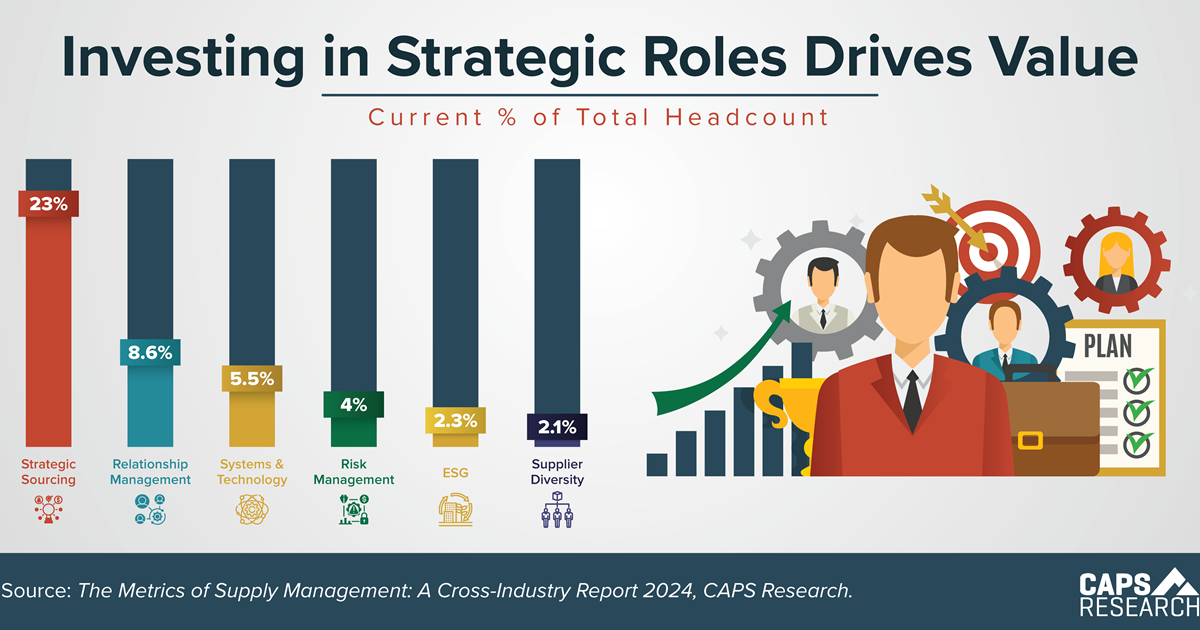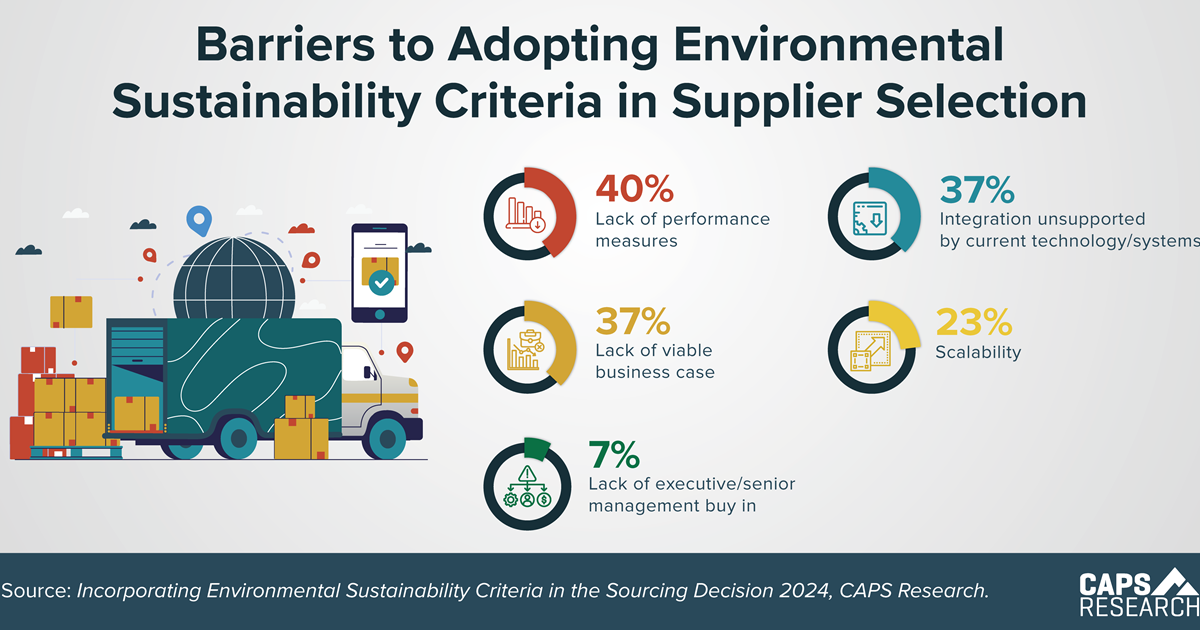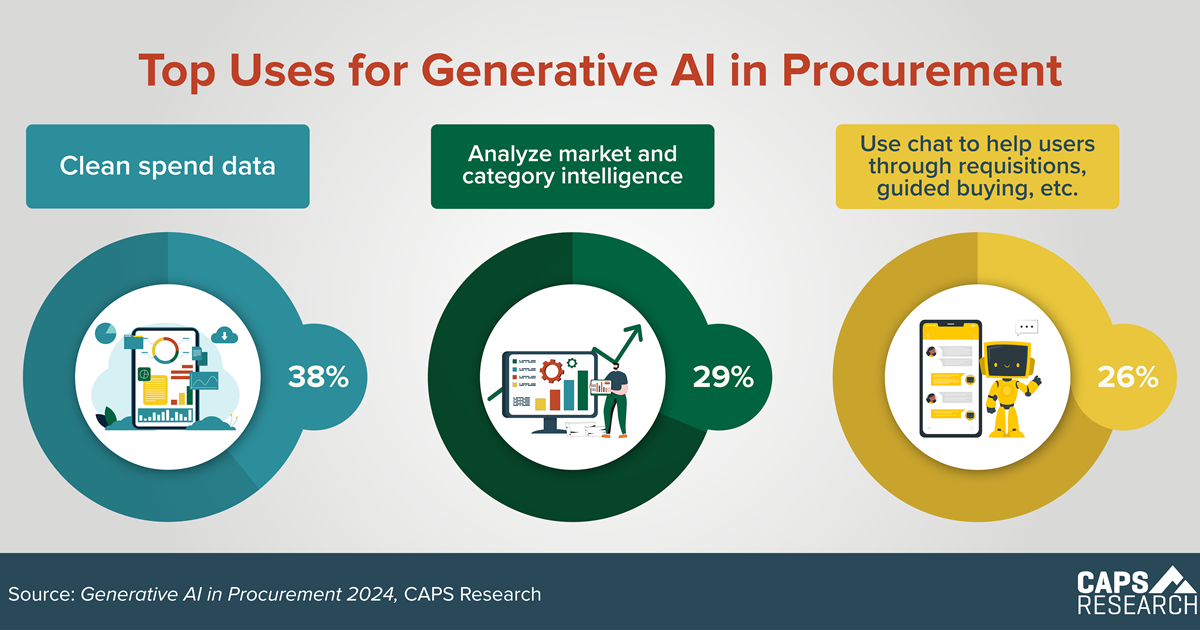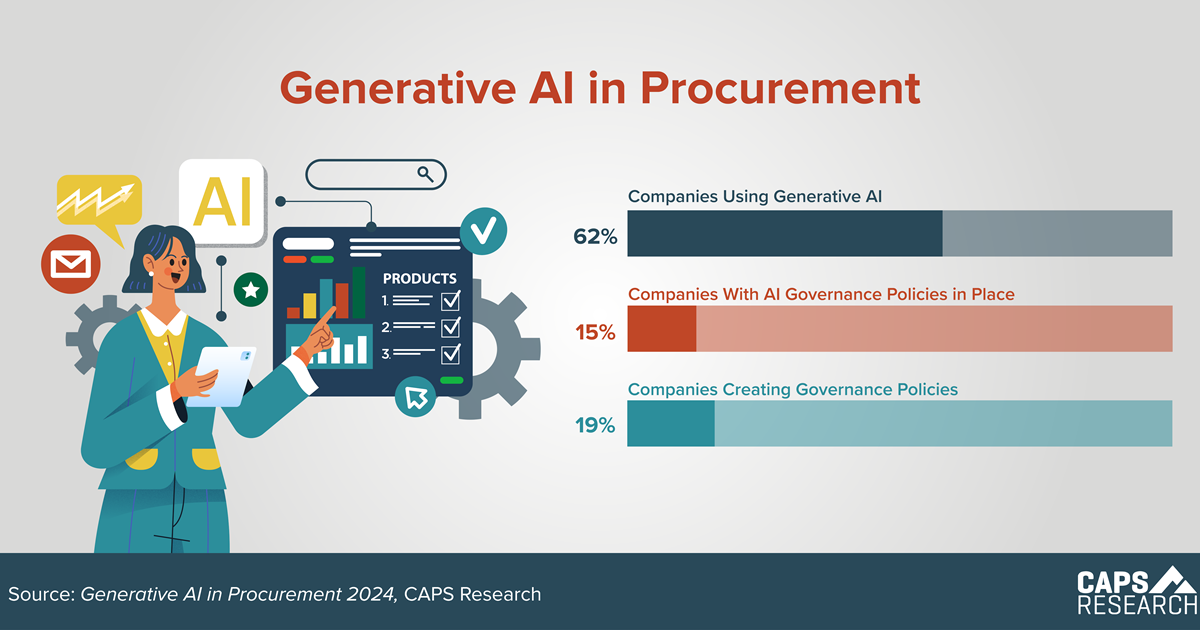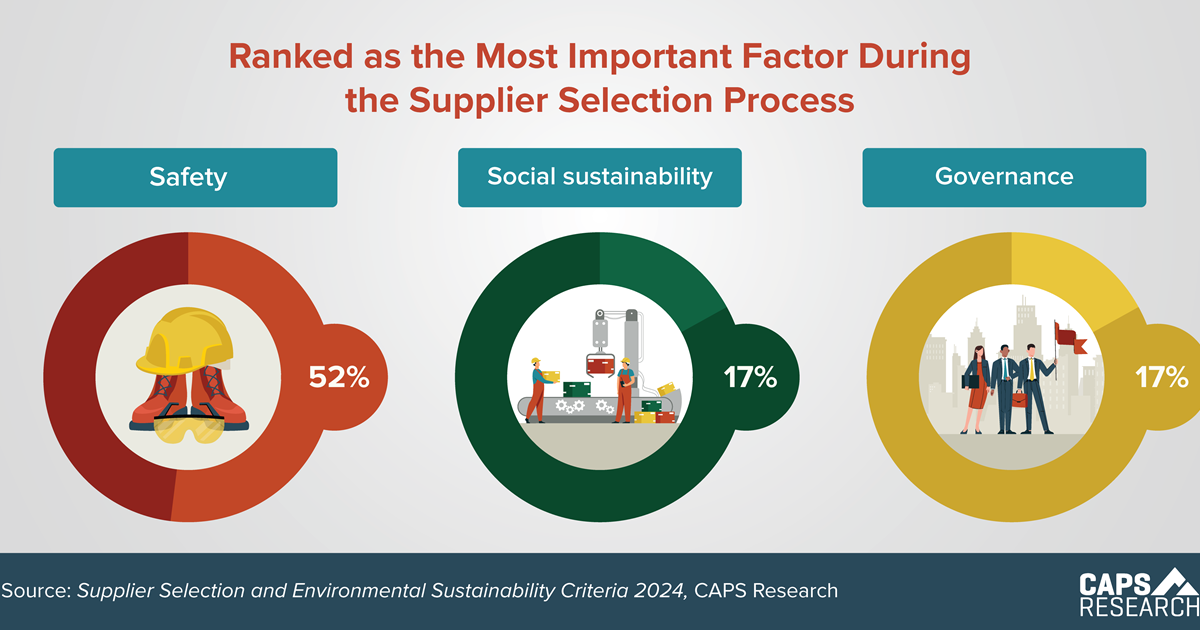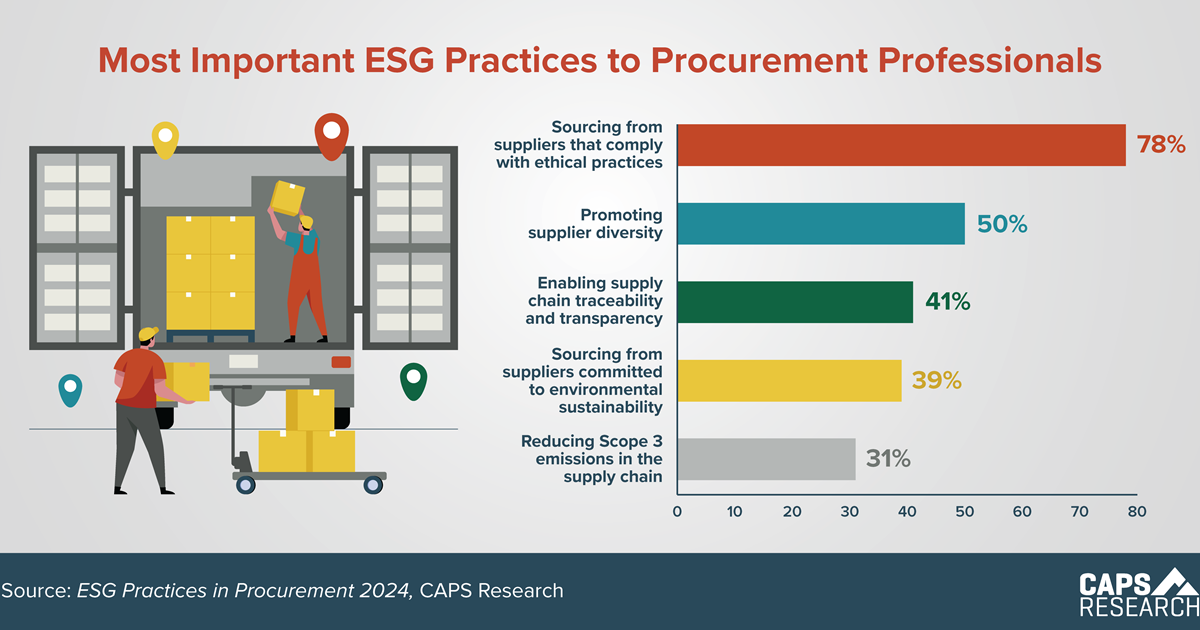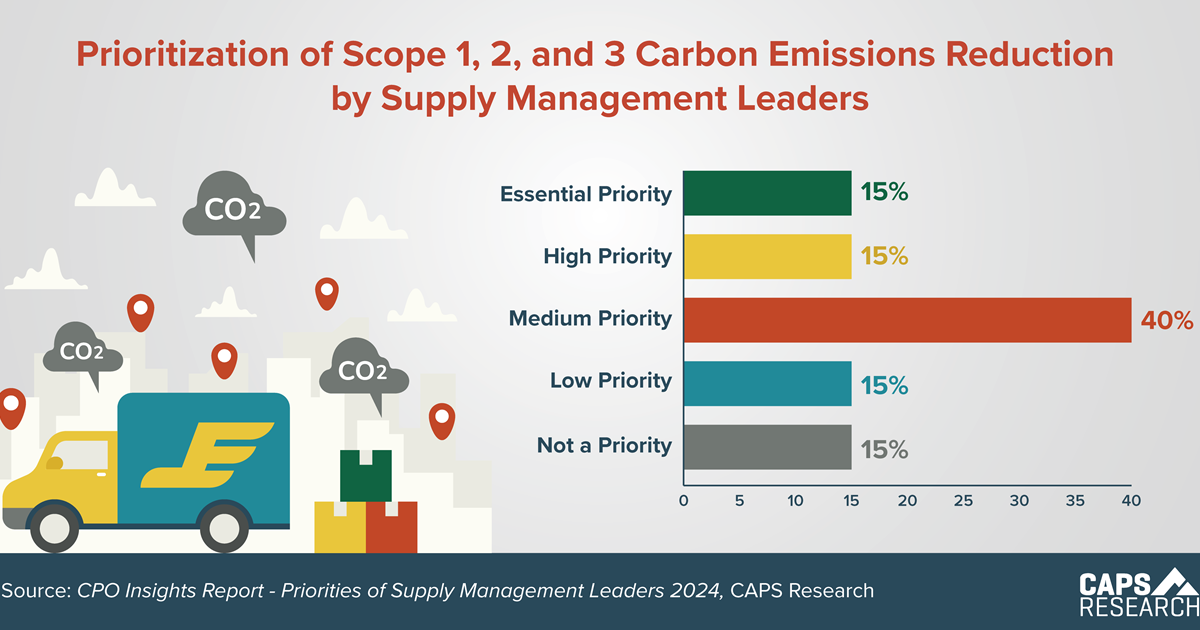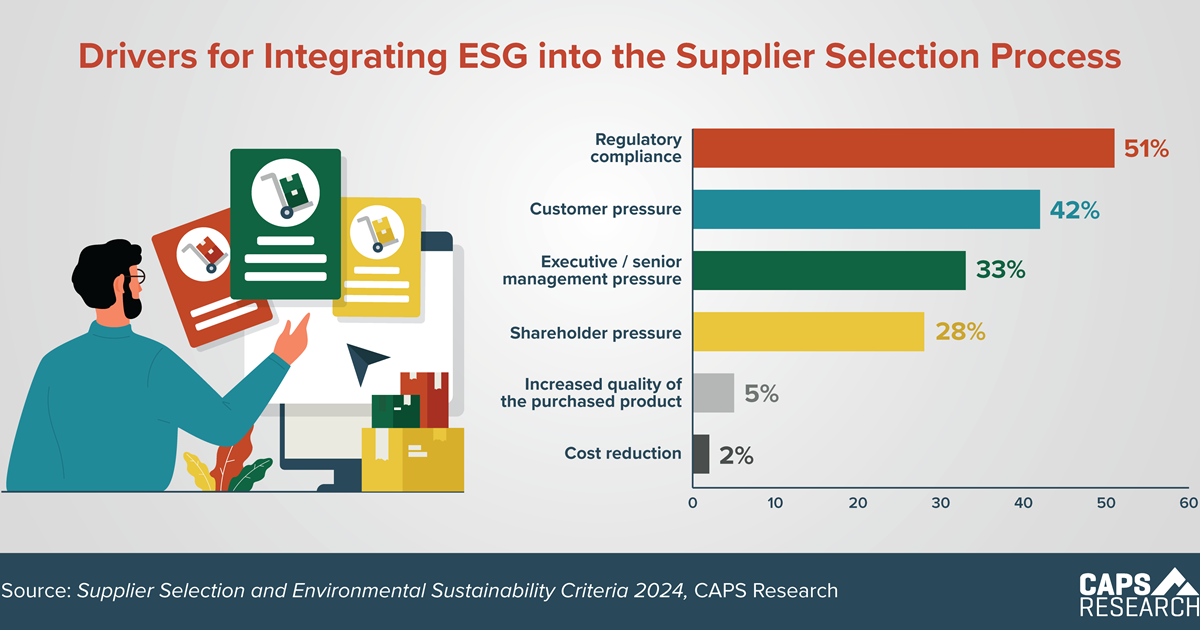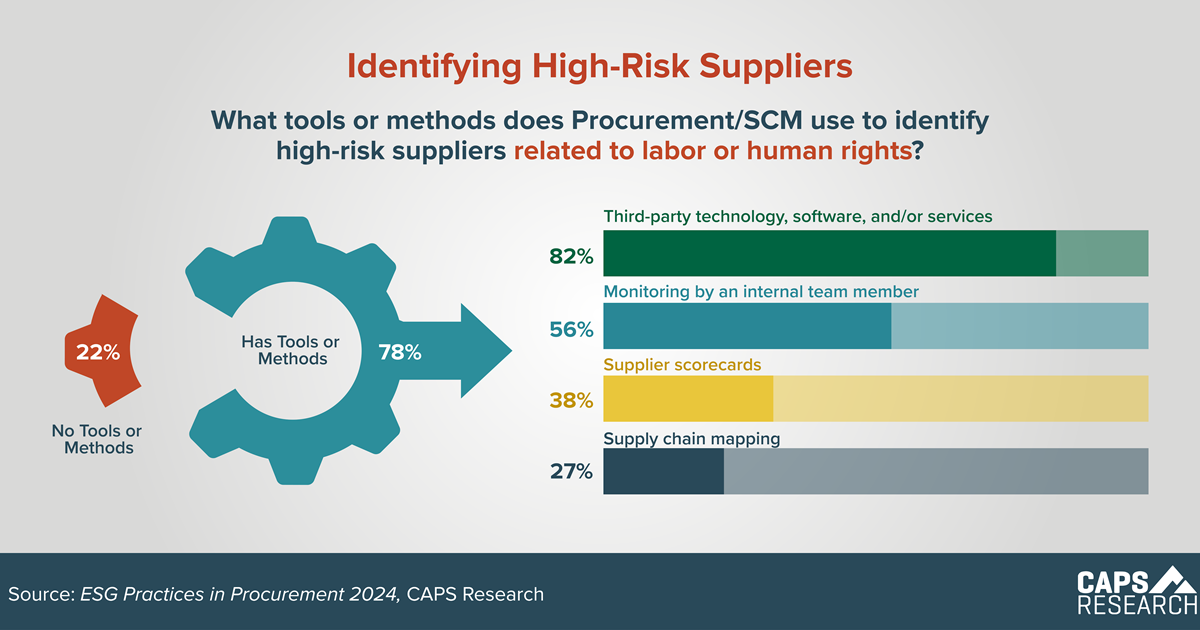Across industries, category management employees comprise an average of 18% of the total supply management headcount. As more companies embrace a formal category strategy approach and invest in this strategic role it opens the door for increased spend and savings per FTE, in addition to increased protection from risk. How does your company compare?
Headcount in Strategic Roles
According to the 2024 CAPS Metrics of Supply Management report, 28.6% of the total headcount is in the tactical role of transactional buying. As companies identify priorities and fill gaps, strategic hires of supply management professionals should help decrease the number of tactical roles that could be moved to a shared services group.
Barriers to Sustainability
Lack of performance measures (40%), lack of business case (37%), and unsupported system integrations (37%) are the primary barriers to adopting sustainability criteria in supplier selection according to a recent study released by CAPS Research. These numbers will likely persist until universal sustainability standards and a clear business case motivate companies to integrate initiatives into their sourcing processes.
Top Uses for Generative AI
Results from a recent report from CAPS Research show that 38% of companies are using Generative AI for cleaning spend data, 29% use it to analyze marketing and category intelligence, and 26% to help users through requisitions, guided buying, etc. This data suggests engaging Generative AI in procurement could bring a significant boost to productivity and profitability.
Using AI in Procurement
62% of companies are currently using generative AI in procurement, according to a recent CAPS survey. However, only 15% of companies have generative AI governance policies in place, with 19% currently creating them. This indicates a significant percentage of companies are likely using Gen AI models without guidelines for protecting intellectual property and other sensitive data.
Factors During Supplier Selection
CAPS asked procurement practitioners to rank the most important ESG factors they consider when selecting suppliers. Safety, Social Sustainability, and Governance were the top 3, suggesting a greater focus on the humanitarian elements of the ESG agenda.
Most Important ESG Practices
Across all manufacturing and services industries surveyed, sourcing from suppliers that comply with ethical ESG practices is most important. Interestingly, just over 30% of supply chain professionals feel reducing Scope 3 emissions is important, despite looming regulatory reporting requirements in California and Europe.
Prioritization of CO2 Reduction
In a recent survey of Supply Management leaders, 30% ranked the prioritization of Scope 1, 2, and 3 carbon emissions reduction as a higher than medium priority while the same percentage ranked it as a lower than medium priority, indicating the profession is split on the urgency of carbon reduction actions.
ESG Integration Drivers
Based on recent CAPS survey results, regulatory compliance and customer pressure are the biggest drivers for integrating environmental sustainability into the selection process for suppliers. Product quality and cost reduction seem to be of minimal or no influence, potentially indicating that companies’ efforts are driven more by external forces than internal adoption.
Identifying High-Risk Suppliers
78% of supply chain professionals surveyed have tools or methods to identify high-risk suppliers related to labor or human rights. Of those, many are using multiple tools including technology, monitoring, and scorecards. The 22% without tools or methods have greater exposure to risk and consequences stemming from compliance failures.
Non-members can receive the report of each survey they submit.
Members can access all reports, but are encouraged to submit surveys to
increase the comparative breakouts only they receive.
